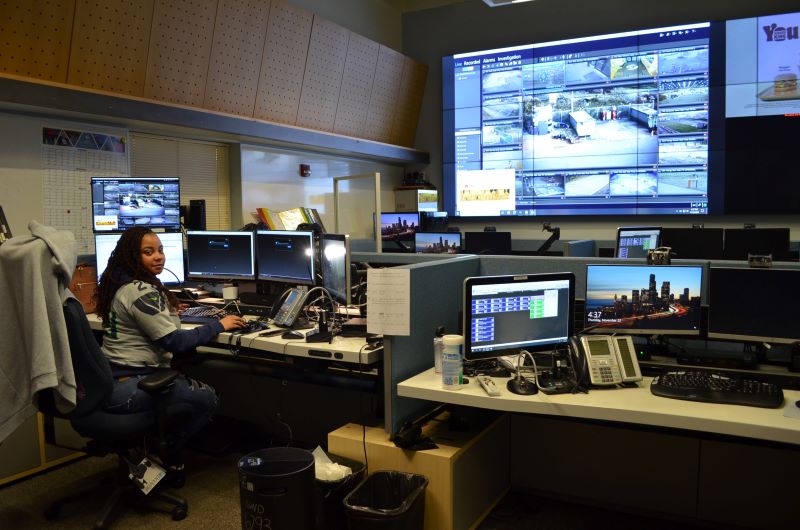
“When I go home, I know I’ve done something beneficial.”
—Pete Blunk, SPU Water Systems Operator
It meant missing one of the most traditional holidays in the nation and a bounty of home-cooked Thanksgiving food.
For employees of Seattle Public Utilities (SPU) who worked this year on the holiday, the tradeoff was clear. They and colleagues at the 1,400-person Utility know well that 1.5 million people in Seattle and the region rely on them every second of every day.
That means providing water for 1.5 million-area residents. It means providing water, drainage and wastewater, and solid waste services for Seattle residents. It also means serving as responsible environmental stewards and community partners.
This public service enterprise, though, is complex: It requires engineering, planning, knowledge, experience, and coordination. For SPU employees, it can mean working on a holiday or weekend, overnight, during a fierce storm or rainfall when scores of people are seeking help, or sometimes alone.
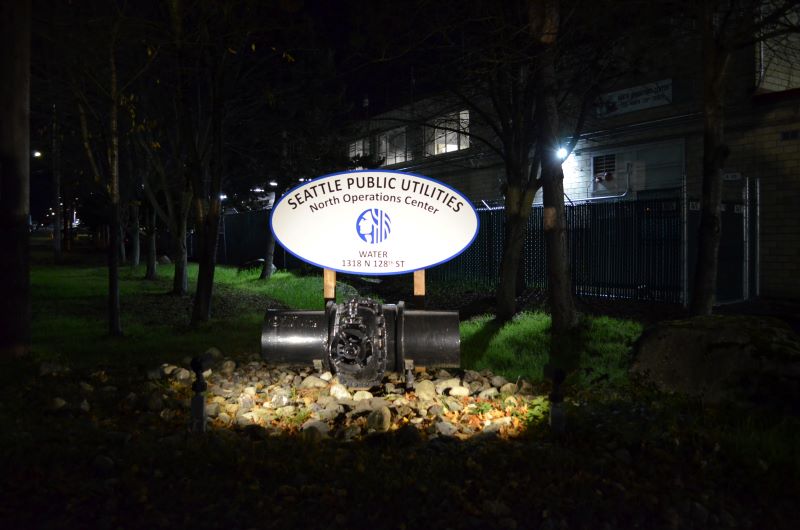
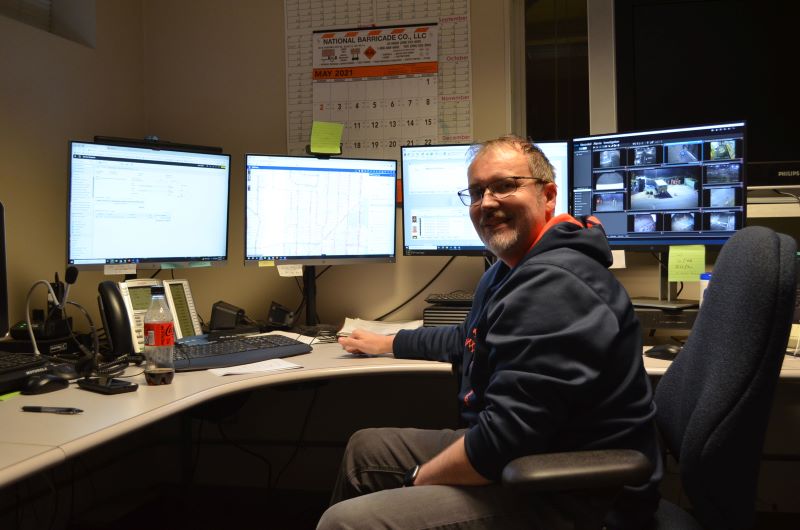
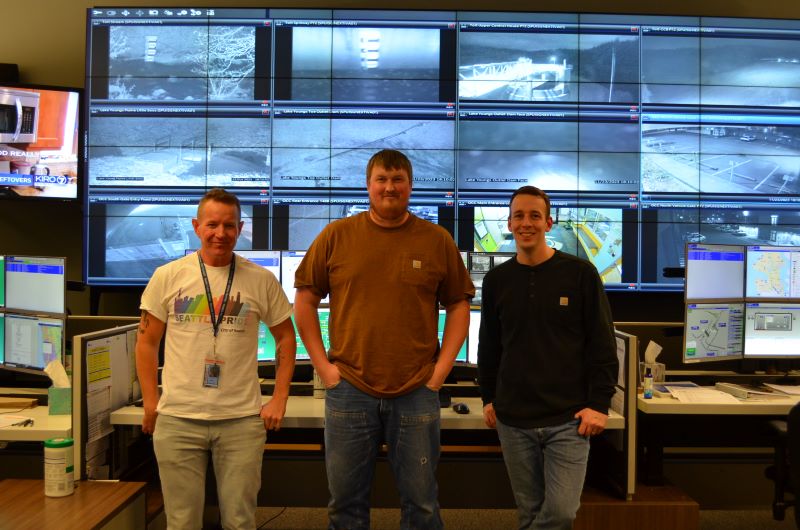
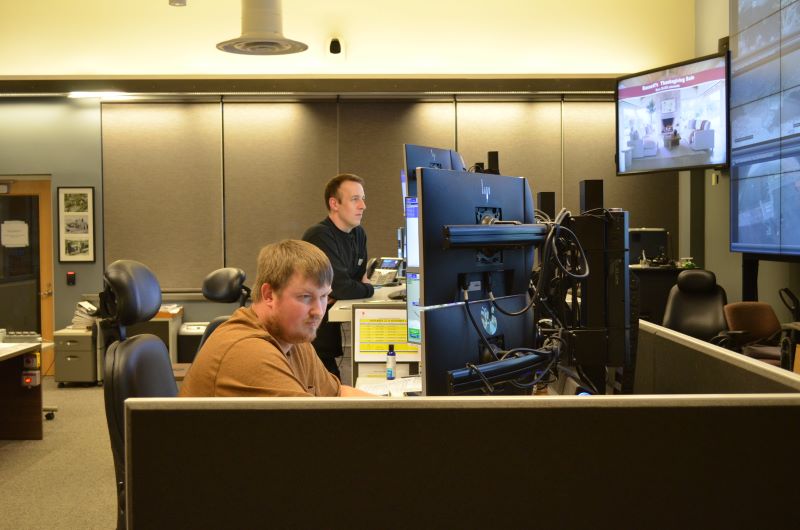
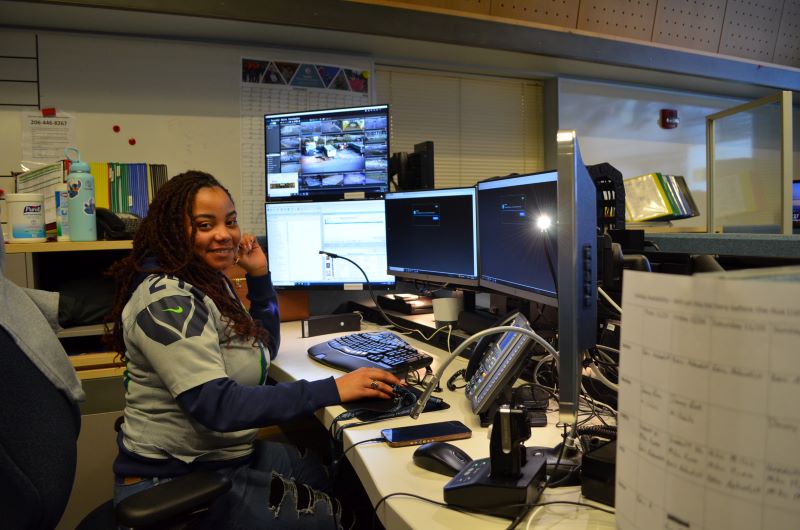
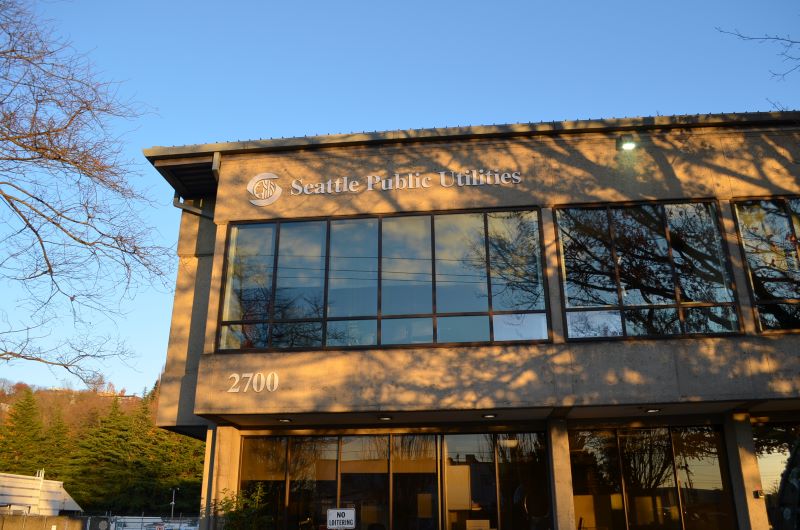
ORC: “The heart of it all”
It’s just after 4 pm on November 23. The fall sun casts a golden-orange glow on the cement wall of SPU’s Operations Response Center (ORC) and Operations Control Center (OCC). Both are housed in the same building off Airport Way South.
Inside the ORC, Rochelle Woods sits in a high-backed office chair. She looks at computer screens and a bank of video monitors extending to the ceiling. The monitors show important locations for SPU operations.
“It’s like the heart of it all,” says Woods, an Operations Response Dispatcher.
When the public needs help with water and drainage at their homes and businesses, they call dispatchers such as Woods. Dispatchers are available all hours of the day.
“Sometimes, we get frantic calls,” she says. “We help by explaining things. That’s why we ask: How much water is flowing? Is it causing damage?”
On this cold, sunny afternoon, unlike when a winter storm hits, she had received no call reporting a serious water or drainage problem.
If such a call came into the ORC, she would have dispatched an SPU first response crew – Water or Drainage and Wastewater employees who show up at a person’s house within two hours of receiving the call for assistance – to investigate and, if needed, make repairs.
“I could have asked for the day off. I could have been home with my family,” says Woods. “If your shift is on a certain day, you work it. The food is going to be there when I get home.”
By about 4:45 pm, her attention shifts to starting her holiday weekend. In 15 minutes, she’ll leave for Lumen Field to cheer on the Seahawks in their rivalry against the 49ers.
Her dispatch colleague at the North Operations Center would answer calls for help.
“I like the job,” says Woods, wearing a Seahawks jersey. “It’s been good to me.”
OCC: “To keep the water flowing”
Next to the ORC, and just through a door, is the Operations Control Center (OCC). Its layout looks somewhat similar. There’s a wall of video monitors that go to the ceiling, as well as desks and computer terminals. The work area is larger.
If employees at the ORC answer phone calls for help from the public, then crews at the OCC focus on ensuring the entire SPU water supply system always meets demand. In basic terms, the system starts with the Cedar River Watershed near North Bend and Tolt Dam near Carnation and extends to a person’s faucet and bathroom.
“As long as people have proper water pressure at the faucet, they’re fine. That’s the way we want it,” says Mike Varnier, a Water Systems Operator.
It’s shortly after 5 pm, and Varnier and two other Water Systems Operators – Pete Blunk and Kaleb Murphy – are either sitting or standing at desks studying computer terminals with data or video monitors that show SPU’s water and wastewater systems.
Maintaining an adequate water supply 24 hours a day for 1.5 million people is complex, Varnier says. It involves proper system pressure and storage levels.
To achieve that takes coordination from SPU crews from SCADA [an information management system], Electrical, Mechanical, Distribution, Transmission, Treatment, and Storage.
“We have all these strings to make this system work. We’re like the bow tie to make sure everything stays together,” Varnier says. “It’s knowing the staff. It’s knowing the whole system.”
Sitting next to him is Blunk, who has extensive experience working with SPU’s Water Pipe Worker Apprentices. These days, his job is water systems operations.
“I’m running the water side of the system today. I decide what pumps to turn on,” he says, occasionally consulting with Varnier.
Turning on those pumps helps SPU meet the right storage level for that moment.
“I like working on holidays. When I go home, I know I’ve done something beneficial,” he says. “Life doesn’t get any more basic than water. Somebody needs to keep the water flowing.”
By about 6:20 pm, Murphy is continuing his work of monitoring wastewater operations. He says if anything out of the ordinary happens, he’ll dispatch a crew of SPU workers to investigate.
“Sometimes, you don’t realize the value of water,” he says. “But society is based on water. Wherever civilizations form, there’s always water.”
He gained his appreciation of the natural resource growing up in Carbonado, a town that sits in Mount Rainier’s shadow.
NOC: Helping by Listening
Up a flight of stairs, about 10 miles north of the Operations Response Center and Operations Control Center, Neal Reinig sits in a satellite dispatch area at SPU’s North Operations Center off North 128th Street.
It’s about 7 pm. The chill on this Thanksgiving night has set in.
Reinig, an Operations Response Dispatcher, brings experience and knowledge to this job – much like many other SPU employees. He joined the Utility in 2008.
When a Shoreline resident calls about a bathroom issue, Reinig asks for that person’s address. Reinig knows quickly that SPU provides water to Shoreline – but not drainage and wastewater services.
To verify, Reinig punches up a map on his computer to verify. He is right. He encourages the resident to contact the City of Shoreline for help.
“We’re the hub for water and drainage emergencies,” he says, occasionally taking sips from a Coke bottle.
His experience in fielding calls from the public shows.
His questions help surface information. By listening to what people say, he can suggest that they contact planning and permit offices or other municipal utilities.
When a Seattle resident calls, he uses his computer to find the name and email address of an SPU sewer inspector. He encourages the person to contact the inspector on Monday.
“It’s nice helping people,” he says. “Sometimes, people need advice.”
By 8:45 pm, his cell phone had pinged at least twice to indicate text messages had arrived.
“That’s probably my family asking if I’ll make it to Thanksgiving,” he says.
As soon as his shift ends at 9 pm, he’ll join them for home-cooked food.
But by 11 am on Black Friday, he’ll be back at the North Operations Center’s dispatch desk. He’ll be ready with headphones connected to the phone and sitting next to a computer.
“It’s my regular shift,” Reinig says. “This office has to be staffed.”